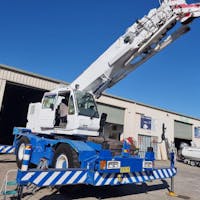Find the Best Rough Terrain Crane Hire Near You
- Post a job
- Receive multiple quotes
- Choose your preferred Rough Terrain Crane supplier
Where do you need Rough Terrain Crane Hire?
Describe your job and our suppliers will send you quotes
227 Rough Terrain Cranes for Hire on iseekplant
At iseekplant, we connect you with an extensive selection of 227 rough terrain cranes from trusted suppliers across Australia. Colloquially, these workhorses are called ‘roughies’ or RT cranes. These cranes are ideal for challenging terrains and complex lifting tasks and are crucial to numerous construction, mining and industrial projects. Our crane range spans various capacities and sizes to meet specific project needs.
Whether facing uneven ground or restricted access, the diverse fleet on our network ensures the right fit for your project. From small-scale operations to large commercial ventures, find the perfect rough terrain crane easily on our platform.
Rough Terrain Crane Hire Rates Guide
Understanding the cost is crucial when hiring rough terrain cranes. This table provides a general idea of the hire rates:
| Crane Capacity | Dry Hire Rate (Per Day) | Wet Hire Rate (Per Day) |
|---|---|---|
| Up to 20 Tonnes | $500 - $700 | $800 - $1,000 |
| 20 - 50 Tonnes | $700 - $1,000 | $1,200 - $1,500 |
| 50 - 100 Tonnes | $1,000 - $1,500 | $1,800 - $2,200 |
Note: Rates are indicative and subject to change based on location, crane model and availability. All prices exclude GST and are in AUD.
A quick comment: Hiring RT cranes on a dry hire basis can get tricky. It's hard (but not impossible) because you have to be an exceptionally well-qualified operator to operate a crane, and working at heights is some of the most dangerous work in construction. Very few crane owners will trust anyone to operate their equipment.
For this reason, most crane companies hire themselves as a subcontracted service (or wet hire), not a dry hire arrangement. Also, before any lift, lift studies, risk assessments and other types of preparatory paperwork must be completed. At times, getting council approval is even necessary before the project commences.
Additional Costs to Consider in Rough Terrain Crane Hire
Hiring a rough terrain crane involves more than just the base rate. Consider these extra costs for a comprehensive budget:
| Additional Cost | Average Rate | Description |
|---|---|---|
| Transportation | $200 - $2,000 | Depends on the distance to the site |
| Operator Fees | $50 - $100 per hour | Skilled operation costs |
| Insurance | 5% - 10% of hire cost | Essential for covering potential risks |
| Site Preparation | $200 - $500 | Necessary for safe and efficient crane setup |
| Environmental Compliance | Varies | Costs for meeting environmental regulations |
| Standby Charges | Varies | Fees for crane downtime or standby |
| Emergency Call-Out Fees | Varies | For urgent or unexpected crane services |
| Extended Hire Surcharge | 10% - 20% of hire cost | Additional costs for prolonged rental period |
To ensure you're fully informed about the costs of your rough terrain crane hire, use our Get a Quote tool to help streamline this process. It connects you with our suppliers, providing a customised quote that accounts for all aspects of your project.
Need a different crane? Check out our full crane category for thousands of cranes of all types, sizes and locations.
Everything You Need to Know About Rough Terrain Cranes: Specs, Pros and Cons
When choosing a rough terrain crane, understanding the distinct features of leading manufacturers is crucial. Terex, Grove and Tadano each bring unique strengths to the table:
- Terex: Terex cranes are known for their advanced engineering and reliable performance. They offer a range of capacities suitable for varied lifting needs.
- Grove: Grove cranes stand out for their innovative design and versatility. They are widely recognised for their robust build and efficient operation.
- Tadano: Tadano specialises in producing cranes with high lifting capacities and state-of-the-art technology. Their cranes are preferred for complex lifting operations due to their precision and safety features.
This table details the popular models from these brands and their specifications:
| Brand | Popular Model | Quick Specs | Pros | Cons |
|---|---|---|---|---|
| Terex | RT345XL | Capacity: 45 Tonnes, Height: 32 m | Manoeuvrable in tight spaces, suitable for diverse lifting tasks | Limited weight capacity, not ideal for very heavy loads |
| Grove | RT650E | Capacity: 50 Tonnes, Height: 32 m | Powerful and versatile, with advanced technology for efficiency | Requires skilled operation in confined spaces, not best for urban use |
| Tadano | GR-550XL | Capacity: 55 Tonnes, Height: 34.4 m | Exceptional lifting ability, equipped with safety features | Larger size may be challenging in compact areas, complex controls require skilled operators |
Rough Terrain Cranes vs. Other Crane Types
Rough terrain cranes are unique in their ability to navigate and operate on uneven surfaces, but alternatives exist for different project needs. Understanding how rough terrain cranes compare to other types helps you select the right equipment for specific tasks. In this section, we explore viable alternatives and how they stack against rough terrain cranes.
- All Terrain Crane: Offers high mobility and load capacity across various terrains, including roads. All terrain cranes blend on-road flexibility with off-road capability. Ideal for sites requiring both mobility and high lifting capacity.
- Crawler Crane: Best for heavy lifting on stable surfaces. Crawler cranes provide exceptional lifting capacity. Their tracks offer stability on solid ground but lack the mobility of rough terrain cranes.
- Tower Crane: Suitable for vertical lifting in confined urban spaces. Tower cranes excel in height and reach for city projects. They're not mobile but ideal for high-rise construction.
- Franna Cranes: Known for their versatility and speed on-site without requiring setup. Franna cranes can move quickly around a site with loads, bridging the gap between mobile and rough terrain cranes in terms of mobility and flexibility.
This table provides a quick overview of these different crane types and how they compare versus rough terrain cranes:
| Alternative Equipment | Popular Model | Quick Specs | Pros | Cons | Vs. Rough Terrain Cranes |
|---|---|---|---|---|---|
| All Terrain Crane | Liebherr LTM 1040-2.1 | 40-tonne capacity, 35 m max lift height | High mobility, versatile | Higher cost | More versatile but less rugged |
| Crawler Crane | Manitowoc MLC300 | 300-tonne capacity, 96 m max lift height | Very high capacity, stable | Limited mobility | Higher capacity, less mobile |
| Tower Crane | Potain MDT 219 J10 | 10-tonne capacity, 60 m max lift height | High vertical reach, stable | Fixed position | Suited for vertical tasks |
| Franna Cranes | Terex Franna AT-20 | 20-tonne capacity, mobile crane without setup | Versatile, quick on-site movement | Less reach than a crane | Offers speed and versatility on-site, less suitable for uneven terrain |
Moving Rough Terrain Cranes to Your Site
Transporting rough terrain cranes to a project site requires careful planning and coordination. The process involves several critical steps to ensure the crane arrives safely and is ready for operation. Some rough terrain cranes are road registered and are allowed to move on paved roads in very certain settings, and on a limited number of roads in metro and regional areas. Others need to be transported to the site on a mobilisation vehicle.
Assess Accessibility
Carefully evaluate the most feasible route for crane transport, accounting for the crane's size, road conditions, and the site's accessibility. Identifying potential obstacles such as low bridges, narrow roads or sharp turns is critical to safe transport.
Choose Appropriate Transport
The right transport vehicle is essential for the safe and efficient transit of the rough terrain crane if unable to operate it on a paved road. Many larger cranes need disassembling before they are moved, and many are moved once to a site and left there for the long term. Moving these beasts involves using specialised vehicles like low loaders or drop deck trailers designed to handle the weight and dimensions of the crane elements, ensuring secure transportation.
Secure Permits and Comply with Regulations
Obtain all necessary permits, such as Oversize Load Permits, and ensure compliance with local and national transportation regulations. This step is crucial to transport large cranes legally and might require coordinating with multiple jurisdictions, especially for long-distance or interstate transports.
Safety and Insurance
Implement stringent safety measures, including risk assessments, to address potential hazards during transport. Ensure comprehensive insurance coverage to protect against any risks or damages during the transportation process, providing peace of mind and financial security.
These steps play a vital role in the logistics of moving rough terrain cranes. Proper execution of these steps ensures compliance with legal requirements and significantly reduces the risk of accidents or delays, contributing to the smooth progress of your construction project.
Elevate Your Project with Reliable Rough Terrain Crane Hire
Choosing the perfect rough terrain crane hire can be complex, but iseekplant simplifies this process. We connect you with Australia's leading craneage companies, ensuring durable, efficient machinery for your project. Our network has the solution, whether a construction site in a remote area or a challenging terrain project.
Need additional support for your project? We also provide access to various construction equipment, from telehandlers to dozers and excavators, to complement your crane hire.
If you have any questions or need assistance, reach out to us at projects@iseekplant.com.au or give us a ring at 1300 691 912. When you're ready to take your project to new heights, click 'Get a Quote' to find the best rough terrain crane hire options.
Popular Rough Terrain Crane Hire Locations
Become a supplier
Recent Rough Terrain Crane Hire reviews
"Freddy did a great job with his 60 ton crane. all new rigging gear certified crane safe and smooth operation"
- JohnView profile"Cannot rate ANC high enough, definitely know their stuff, prompt, reliable got the job done without a hitch, highly recommended."
- Garry StarkeyView profile"Chris helped move our 20Ft container into place with such ease. He was incredible to work with, always quick to respond and happy to have it done in a..."
- HunterHorseHavenView profileHow It Works
Rough Terrain Crane FAQs
Here are some frequently asked questions and tips on finding the right rough terrain crane supplier for your job.
What do we have to offer?
Want to Know More?
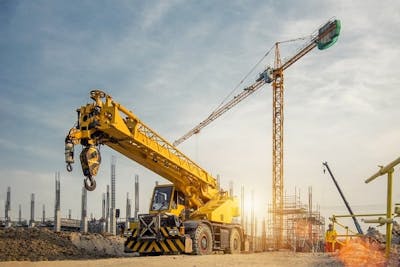
6 Things to Know Before Hiring a Crane
Before you start your next project, there are some important considerati...
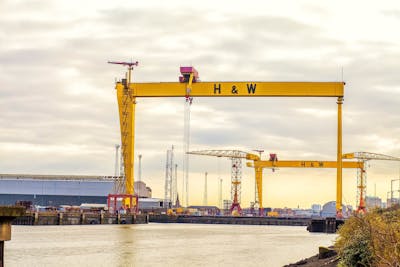
Top 5 World's Biggest Cranes
Whether it's a small Franna or a massive Telescopic machine, cranes have...
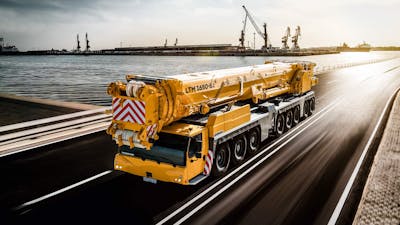
12 Biggest Crane Brands in the World - 2024 Edition
There has been heaps of movement in the crane manufacturing space in the...
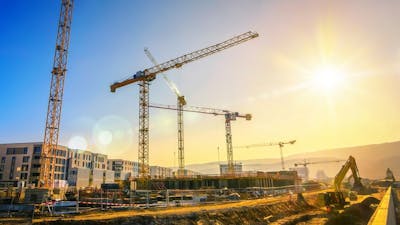
Types of Construction Cranes
From tower cranes to spider cranes, there is a range of crane types th...
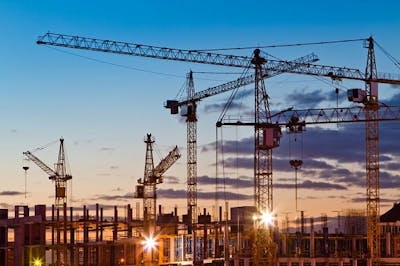
Crane Operator Licence & Ticket Guide
Operating a crane can be an interesting and diverse job, as cranes pre...



